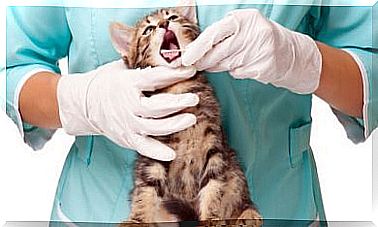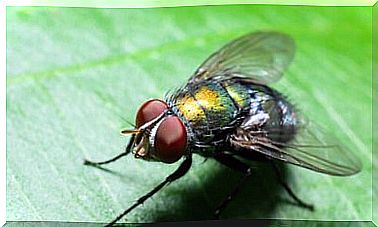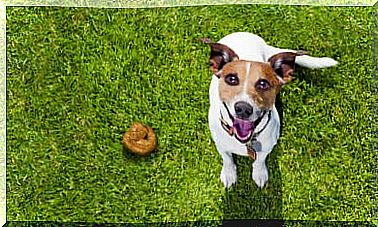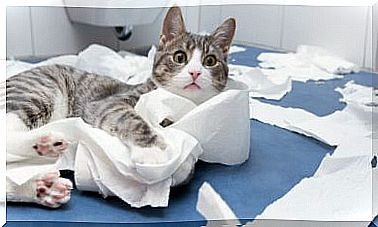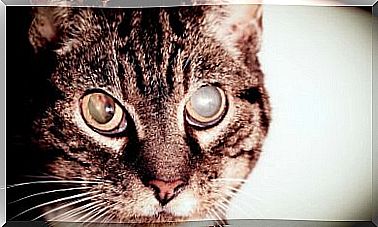Symptoms That Reveal Health Problems In A Cat
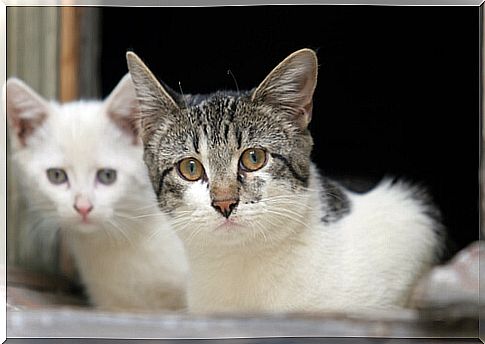
If your kitten is suffering from a disease, it will not always make you notice it in an obvious way. That is why it is important to observe it and be attentive to some details that can indicate anything from minor problems to serious ailments. Going to the vet to tell us the appropriate treatments is always the best option.
Some symptoms that we must take into account
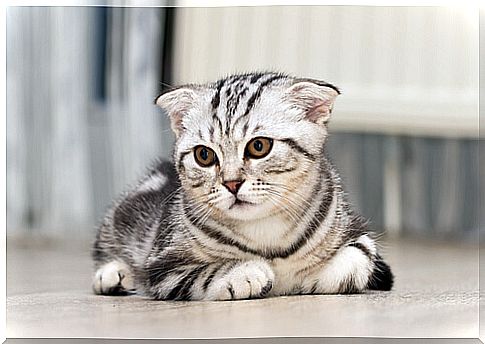
One or more symptoms may be indicating different types of conditions. Early consultation with a professional is essential to avoid greater ailments for our cat.
We tell you some details:
- Weight loss is one of the first visible symptoms of kidney failure. It is followed by excessive consumption of water and then anorexia. Unfortunately, when you start to detect these signs, the disease is already very advanced.
- Weight loss can also be due to internal parasites and diabetes. In the first case, in addition, diarrhea, vomiting, dull hair and loss of appetite usually occur. If it is diabetes, you will surely notice that the cat drinks a lot of water and urinates excessively.
- If your feline friend repeatedly goes to his litter box, or urinates, or tries to urinate, on other horizontal surfaces -beds, sofas, etc.- and licks his urinary tract frequently, he is surely suffering from cystitis or an obstruction. If you try repeatedly and cannot have a bowel movement, it may be due to a bowel obstruction.
- Meowing constantly, day and night, for no apparent reason, may be due to the animal being deaf.
- Swelling in some part of your body is attributable to an abscess. These concentrations of pus in the deeper layers of the skin are the result of bites or scratches. As in any infectious process, the animal will surely show itself down.
- If you move or tilt your head, scratch your ears or have a discharge from your ear, you are probably suffering from otitis.
- Bad breath, chewing only on one side of the mouth, or directly stopping eating, are indicating a problem with a tooth or tooth.
- Collapses and fainting can have cardiovascular or nervous system origin.
- Difficulties in walking and moving are related to bone and muscle problems.
- If you have scabs and ulcerations on the skin, they may indicate scabies or ringworm.
- Watery, festering eyes and swollen eyelids are signs of chlamydia.
- Colds and allergies can manifest themselves through:
- Sneezing
- Loud noises when breathing
- Snot
- Crying eyes
- Cough
- Nasal or chest congestion
- Fever
Symptoms of other health problems in a cat
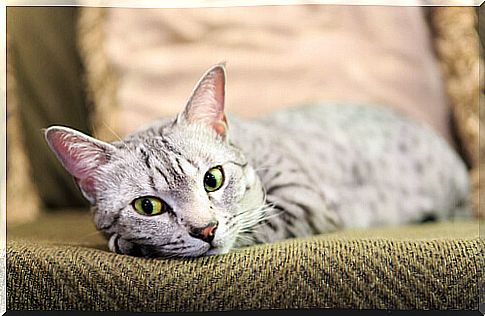
Next, we detail other diseases that cats usually suffer from and the main symptoms to identify them:
- Coccidiosis : It is an intestinal disease caused by internal parasites. Symptoms are diarrhea, bleeding, anemia, dehydration, weight loss, vomiting, and pain when feeling the stomach.
- Feline panleukopenia (EIF) or feline infectious enteritis : It is a viral disease caused by a parvovirus and that is spread through feces or urine. It causes loss of appetite, fever, frothy vomit, abdominal pain and yellow-gray or hemorrhagic, dark and foul-smelling stools.
- Calicivirosis (CVF) : It is a virulent strain of the common cold. It presents with a moderate fever, sneezing, increased salivation, mouth ulcers, and blisters on the tongue.
- Feline Rhinotracheitis (RVF) or cat flu : It is a complex of diseases of the upper respiratory tract. It occurs with respiratory disorders, fever, mucus, sneezing, conjunctivitis, lacrimation, cough, ulcerations in the cornea of the eye.
- Feline Leukemia (LVFe) : The infection occurs through contact with other animals carrying the disease; Years may elapse between contagion and the appearance of clinical symptoms. The most common symptoms are loss of appetite, drowsiness, weakness, and anemia.
- Feline Infectious Peritonitis (FIP) : It is a viral disease that affects, above all, cats that live with many others of their species. It is characterized by general decay, dilation of the abdomen, pulmonary and abdominal edema.
- Rabies : Affects the central nervous system. The animal will experience change of character, paralysis of the muscles of the throat and cheeks -which causes difficulties in eating, drinking and a strange expression of the face-, and profuse drooling.
- Typhus : It destroys the cells of its immune system, which causes a decrease in the animal’s defenses. It usually occurs with diarrhea, vomiting and fever.
- Coryza : Set of respiratory diseases. Its symptoms are runny nose and eyes, sneezing, fever and ulcerative lesions in the mouth.
- Bronchopneumonia : It is an acute inflammation of the pulmonary bronchi and alveoli. Its symptoms are cough, fever, catarrh, mucopurulent emissions, altered sensory state, and respiratory distress.
Remember that a healthy cat is one that moves easily, climbs, jumps, eats with enthusiasm and is neatly groomed. The absence of these habitual attitudes may be indicating a health problem in your beloved pet. If it does not improve soon, do not stay with the doubt and take it to the vet. It is convenient that you always have their number and address at hand, for any emergency that may arise. Without a doubt, this will be one of the best ways to show your cat how much you love and care about him.
